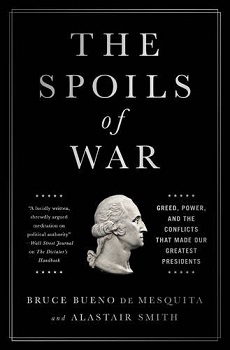
How would you rate an American President whose term was marked by an 8% annual growth in per capita income? Further, this President’s administration recorded zero wartime casualties. Sound good?
Turns out, the President in question was Warren Harding, widely regarded as one of the worst Presidents in US history. So what’s the deal? According to NYU political scientist Bruce Bueno de Mesquita, waging war is one of the surest means to success for a president, at least as far as getting re-elected constitutes success. Peace and prosperity simply don’t do it. In this week’s EconTalk episode, he talks with host Russ Roberts about this fascinating (and depressing) correlation. Even such American heroes as George Washington and Abraham Lincoln come under fire for what he sees as their naked self-interest when it came to waging war. Was Washington really an idealistic champion of liberty, or was he merely protecting his landholdings in the middle colonies? Was Lincoln really the savior who delivered us from slavery, or was that only a calculated position taken to gain the Presidency and subsequent re-election?
Regardless of your opinion of these and other individual Presidents, Bueno de Mesquita makes some fascinating arguments about the wartime strategies in autocracies versus democracies and the advantages of taking strong positions, such as John F. Kennedy’s in the Bay of Pigs. He also poses some challenging and fundamental questions about the nature of the relationship between the President and public opinion. If you haven’t had a chance to listen (or read the highlights) yet, we hope you’ll click over and do so.

READER COMMENTS
roystgnr
Dec 15 2016 at 10:04am
The scandals under Harding’s administration were responsible (whether fairly or not) for his poor later reputation, no? Wikipedia says he was a very popular president when he left office, which would be evidence against the proposition that presidents need war to boost their popularity.
I still obviously believe the weaker proposition that presidents involved in war tend to see a boost in popularity. G.W. Bush’s approval ratings shot from 55% to 90% in the wake of 9/11. If I had to choose between the competing explanations of “35% of voters had previously harbored a rational concern that the president’s giving-a-speech-on-a-rubble-pile skills weren’t up to par” versus “chimps rally around the alpha male when the troop is attacked” I’d have to go with the latter.
Comments are closed.